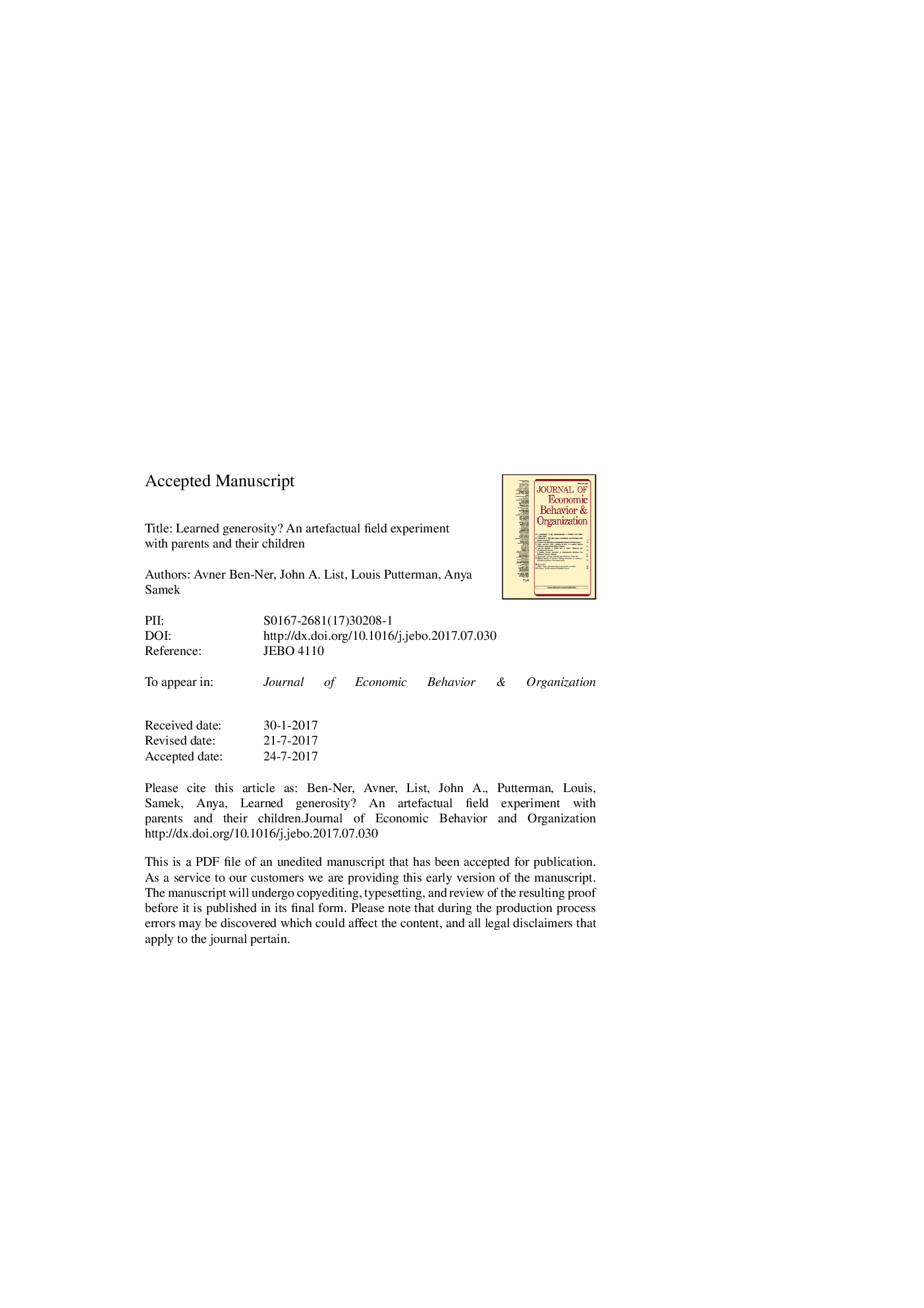| Article ID | Journal | Published Year | Pages | File Type |
|---|---|---|---|---|
| 5034411 | Journal of Economic Behavior & Organization | 2017 | 44 Pages |
Abstract
An active area of research within the social sciences concerns the underlying motivation for sharing scarce resources and engaging in other pro-social actions. In this paper we ask: do parents model social preference behavior to children, and do children emulate this behavior? We develop a theoretical framework to examine this question, and conduct an experiment with 147 3-5 year-old children and their parents, using dictator games to measure generosity. We find (1) evidence of parental teaching/modeling in the case of fathers and in that of parents of relatively generous children, and (2) an emulation effect such that children who initially share less than half of their endowment subsequently share more the more they see a parent or other adult share. We find little correlation between baseline sharing of children and the parents, with the possible exception of the oldest children.
Related Topics
Social Sciences and Humanities
Economics, Econometrics and Finance
Economics and Econometrics
Authors
Avner Ben-Ner, John A. List, Louis Putterman, Anya Samek,
